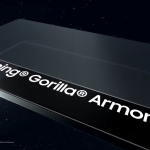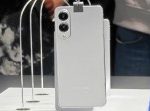With a firm handshake, say hello to Business of Beauty—an exclusive, inside look at each of the incomparable journeys of entrepreneurs of color in the beauty industry. This series is anything but business as usual. It’s a raw, honest look at the unique and often overlooked challenges that people of color face when starting their own beauty brand. Each founder will reveal the biggest hurdles they’ve overcome, their internal struggles, and their deepest thoughts about what needs to change in the beauty industry (and the world, really) to make it a more inclusive space for everyone.
This time around, we’re getting to know Klur founder Lesley Thornton. As a veteran beauty-industry expert and aesthetician with over 10 years of experience, she wanted to create an ethical, inclusive, and holistic skincare brand that puts the needs of Black skin first. Read on below to learn all about her journey into entrepreneurship, personal skincare challenges, and her favorite products from the line.
I’d first love to start by talking about your background as an aesthetician and why you decided to create your own brand.
I became a licensed aesthetician in 2010—which was well over a decade ago. When I was seeing clients, I essentially could not find the products I needed because I had various clients with different needs. I was in Los Angeles, in Hollywood at the time, and I felt like I was starting to see a segment of women (and men too, but mainly women) who were coming out of those teenage years, approaching their 20s and 30s, where they could not use the same skincare. They couldn’t use Neutrogena anymore, couldn’t use Clean & Clear anymore, but they were still struggling with hormonal imbalances and acne. They were also wanting to work their way into [using] some anti-aging [products]. They would say, “I don’t want to use benzoyl peroxide, but I want to jump into retinol.”
So when I decided to create Klur as a brand, it was a few years into [doing] treatments. I realized that there wasn’t really anything that was sophisticated enough that felt like a grown-up skincare brand. It needed to meet the clinical needs of what you could get from an aesthetician or dermatologist with high-performance ingredients as well as contain the soothing botanicals of a natural-care product. It really clicked with me in 2013 that after I had been seeing clients for a few years that there were no Black aestheticians with a skincare line on the market at all—not one. I just took a step back and said, “With all the knowledge that I have, the education I have, and my real life experience with people, I think I can do this. I think I should at least try to put a line out, even if it’s just sold in my spa. I can just sell it to my clients.”
That’s how it began; it actually just began focusing mainly on selling it to my clients. Eventually, I was called by Urban Outfitters in 2014, and that landed us on shelves. Very quickly, we did very, very well. This was my first foray into anything retail. I had no clue that there had never been a Black professional skincare line on the market. I’d never known that there wasn’t a Black aesthetician who’d ever had a product on a shelf, on a major retail shelf. I had no clue—I was just kind of going. At that point, I decided to close my spa and stop juggling all these things and just solely focus on building as a brand. Two years later, after a really good run and being in 200 stores, I voluntarily pulled out of Urban Outfitters to take care of my own health because I felt like I was compromising it by running a facial studio and trying to build the line. So I took two years off to rebrand and relaunch the line.
What would you say is the core ethos of Klur, and what is your brand mission?
As a founder, I believe that my personal mission is the same as the brand mission, and that is to inspire, educate, and guide individuals into making healthy decisions. Not only just skincare decisions but healthy decisions living holistically and showing them that by using skincare as a catalyst to inspire and cultivate a healthy lifestyle using holistic tools.
It’s so great to see so many women of color creating their own brands now—especially ones that champion holistic practices and ingredients! Would you say treating melanin-rich skin is different than treating those with lighter skin tones?
People of color come in all different skin tones, which is fantastic because speaking clinically, there is a difference in melanocyte activity. Some people have very robust melanocytes, which means they’re much darker, and then some people have melanocytes that are not as active. That’s one reason why we actually get hyperpigmentation is because the melanocytes rush to that one area and then they darken. They act as a sort of healing mechanism to the skin, and it ends up healing darker in an area. When we look at dark skin versus lighter skin tones, I think one of the main things is (besides all the science-y stuff), there is some thickness in the skin. I think that people don’t realize with darker skin, you must treat it quite gently.
Having that experience working with dark-skinned women and being a Black woman, of course, I realized that, for the most part, skincare brands were catering to lighter skin or white skin before they would cater to darker skin. We reversed the scale and actually made sure that we put dark skin at the forefront of the science, and we realized that fair skin actually can also take a gentle approach. There’s not a single person with skin that can utilize a harsh skincare routine. You don’t have to be sensitized or sensitive to have a gentle routine. It’s actually really, really important that all of us practice that gentle consistency. I think with dark skin, somehow people have believed that you can take this aggressive approach, and you really cannot, because the skin does hyperpigmentate. When you understand that, though, that’s actually really beneficial to all skin.
I think a lot of people end up learning that the hard way—myself included. I treated my skin so aggressively when I was dealing with acne, but I’ve actually seen much better results using gentle products like you said!
Everybody does! You will find better results with something I call gentle consistency. You practice being gentle, but on a very consistent basis. You cannot do anything harsh regularly anyway. So you can maybe do one or two very strong peels per year, but when we look at skin of color, dark skin, and melanated skin—however you want to put it—the things that benefit skin with really active melanocytes can actually benefit any skin.
I’m definitely taking notes because I’m learning a lot. What would you say were some of your biggest challenges when you were first starting your business, and how did you overcome them?
I’m dyslexic and was diagnosed at age 7 or 8, so I was put in a situation where I’d always have a challenge in front of me from a very, very young age. With Klur, it’s hard to say that these are challenges that no one else has had—challenges are just part of business. I have a hard time saying that my challenges are different from someone else just because, like I said, from an early age, obstacles were put in front of me, and I just always shot to overcome them. They’re just part of life, and I didn’t make a lot of excuses. With Klur in general, I think one challenge was just getting people to believe in the brand. Just getting people to believe that the brand was at the level of all these other big brands or had the same quality products and getting retailers to believe in what I was talking about pre-2020. I was emailing retailers telling them, “I’m a Black aesthetician and have this really beautiful inclusive brand that I’d love for you to know about.” Editors would not respond, and retailers would not respond. Trying to get that message across was really, really difficult pre-2020. It was fairly difficult to just get people to listen. I think the industry is so focused on trends that when they see a trend two years before, they don’t recognize it. I think if anything, all the challenges that were before me with Klur were nothing compared to overcoming dyslexia, so I just don’t think of these as challenges. I think they’re just part of how business operates, and they just made me better.
Did you ever feel like you faced any biases as a woman of color starting your own business?
I’d already had a very successful facial studio, and I already had clients, so I thought that if it didn’t work in retail, then I’d just have my facials to do. I think my clients trusted me so much that it made me feel like I could go pursue this in the world. I already had a test market, and I didn’t even realize it. I had this research panel of people who already trusted me. I didn’t feel like I was facing any kind of discrimination based on me just being a Black woman. I do think that when I launched with Urban Outfitters a long time ago, you wouldn’t have recognized the brand, because it looked so different. It was still called Klur; it just looked entirely different. I didn’t show my face, so you wouldn’t have ever known I was the founder. I didn’t really have those challenges, because I wasn’t out there. But I guess maybe in another way, that is kind of a challenge. I’m just not comfortable being the face of the brand I guess you would say. I just want to do the work, and you know, if I have to show up, I’ll show up. I essentially just think the community is the face of the brand in a way.
I’ve also seen you mention that a lot of mainstream beauty brands are not offering quality products to Black consumers. Can you expand on that a bit more? How can we continue to change that?
When I started Klur, I’d already been in the beauty business for 20 years. I’ve worked at Estée Lauder, I’ve done retail, I’ve worked at MAC, and Laura Mercier. When I was a young girl working in the mall with all the brands in Macy’s, I think there was only one makeup line [for women of color], Fashion Fair, and then a little bit later Iman Makeup came in. MAC also ruled the Black community—it just took over all those things. I don’t think people give MAC enough credit, because MAC was the OG brand for everybody, but the skincare didn’t work. With that being said, I think that mainstream brands just don’t understand the customer. I think brands have to be built by Black people—I really do. In particular with skincare, I think that we have to take an expert approach; there have to be Black aestheticians or Black dermatologists heading these brands. I don’t think a lot of people care to take the extra time. This goes for any type of doctor. They generally don’t take the time after they’ve spent eight years in school to study dark skin for two more years.
I think that the reason why mainstream brands can’t and will not offer this quality is because I don’t think they’re tapped into the customer. I don’t think they understand the customer. I think that in order for that to expand, we’re going to have to see Black founders begin things and people have to believe in them. I think that’s a hard question to just answer with just a few sentences, but essentially, to sum it up, I just don’t think that mainstream beauty companies like Estée Lauder are tapped into the consumer. That’s why we have to just do things ourselves.
What are some of your own personal skincare challenges, and how do you overcome them?
When I was younger, I was really, really oily, and I thought it would never stop. I thought the grease would never end and thought, “I’m always going to be slick. I’m always going to be shiny.” As I’m getting older, my skin is getting drier. For some reason, people think that Black people don’t get dry, and I’m like, “Come on, it’s here!” I am layering hydration. Our skin does change with time and age as estrogen starts to slow down. We don’t quite have that glow anymore. So I think one of my biggest challenges is just been trying to keep up with the changes of aging. People think “Black doesn’t crack,” and we’re just going to be fabulous for our whole lives, but skin does change as we get older—quit lying!
What would you say are your top three products from Klur that you like to use?
Easily the Gentle Matter Daily Moisture Cleanser ($40)—I’m a big cleanser person. My second would be the Supreme Seed Purification Mask ($60).
That’s my favorite product from the line too!
It’s been such a surprise and delightful hit for us. I was so hesitant to put a mask in our line since there are a trillion mask out there.
I’m so glad that you did. It’s a staple in my routine.
I’m glad you love it! I didn’t expect it to take off the way that it did, but it’s such a unique mask. It’s such a shining example of what self-care can feel like and how hybrid clinical products can function and work like. You’re like, “I’m getting the results that I want out of a serious product, but it just feels like it gives me a self-care moment between the scent and the texture. I know the next day my pores are going to be tight, my skin is going to be smoothed, and I won’t be dry. I’m actually more moisturized.” I also treat all skin as if it is sensitive—everybody benefits. I always thought, “Why don’t we just take the approach that all skin can possibly be sensitive or sensitized?” It’s a win-win. My third favorite product is the Sculpture + A Overnight Enrichment Cream ($150), which is our retinol night cream. That is my favorite night cream.
That being said, please drop the full skincare routine!
My morning routine is slimmed down—it’s very straight to the point. If I go to the gym, then I come home, and I wash my face. If I don’t do anything in the morning, I don’t cleanse, and I’ll go straight in with a hydration mist. I just like to hydrate the face with something and give it the feeling of waking up. Then I go in with Klur’s Symmetry Fluid Anti-Pollution Serum ($70) which is an antioxidant-rich, protective fluid. Then I put it on a La Roche-Posay moisturizer-sunscreen that’s a two-in-one product. Hydration and protection are all I’m worried about during the day. Then at night, I do all types of things. So I’ll pull out my NuFace Trinity Facial Toning Device after I cleanse. I like to do gua sha, and some nights I apply Supreme Seed. I use Klur products faithfully—I love my products! I enjoy them, I use them, I make them not just for everyone else to enjoy, but I want to be able to proudly say that I utilize the things that I make. In all honesty, if I didn’t know how they work, how can I explain to you how they work? I use Sculpture A + as my night cream every other night and then the Klur Unseasonal Kind Face Oil ($90) on top of it, which is a facial oil I’ve created that works in sync with the product.
What else would you like to see change in the beauty industry?
I would love to see expert-made brands being the center of the conversation in beauty. There are a lot of brands, and there are a lot of products out there, but a lot of people lack the knowledge to really educate the consumer. I would love to see more articles, editorial pieces, and brands by experts. In Sephora, there are probably 40 celebrity-founded brands and only one or two aesthetician-made brands. I think that if we expect consumers not to not get overwhelmed like they are now, we have to start to hone in on who are the people who do this for a living? Who are the people who know all skin and who can educate the consumer?
Up Next: How Jazmin Alvarez Is Paving the Way for a New Kind of Clean Beauty





